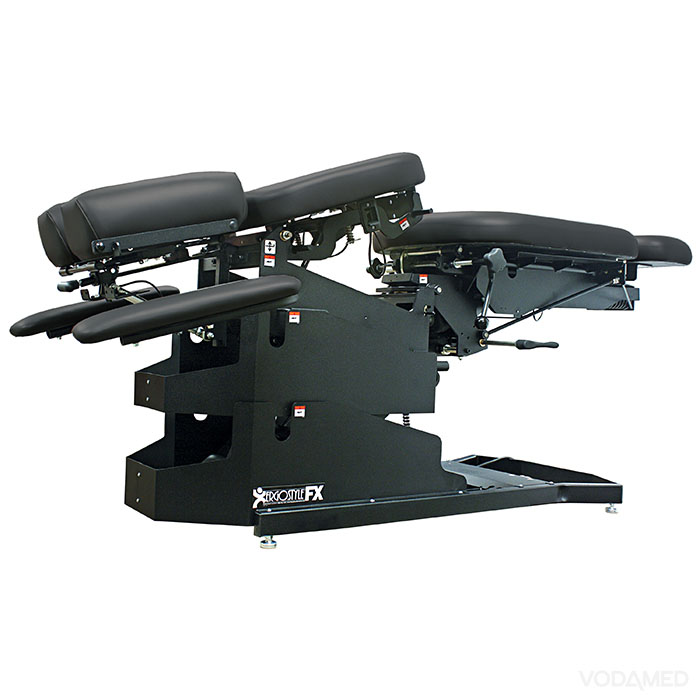Conditions that may benefit from flexion distraction therapy include.
Flexion distraction table benefits.
How is flexion distraction performed.
Decreases mental and oxidative stress.
Flexion distraction is an effective and economical technique of disc decompression which uses a specially designed chiropractic table which allows the patient to bend or flex at the waist and also permits specific head motion along with enabling isolated vertebral separation.
The leander table is the first table designed to provide an excellent patient experience and protect the practitioner s own back health.
Increases spinal motion and fluid within the disc and spinal joints.
What is flexion distraction.
Our tables are designed and made in the usa with custom and variable height options.
Motorized flexion distraction means less force is required for spinal corrective procedures.
In essence you are letting gravity do most of the work in adjusting the spine.
Helps to prevent surgical intervention.
Advertisement the cox flexion distraction technique or cox technic does wonders for resolving mid and lower back pain neck and shoulder pain hip pain and decreasing the effects of whiplash.
Reduces pressure on the spinal nerves from a disc bulge or herniation.
Flexion distraction works for disc related conditions by increasing the intervertebral disc height removing annular tensions on the nerves and fibers thus making more room while improving circulation.
How is flexion distraction performed.
Boosts the immune system.
Cox flexion distraction or cox technic helps in improving range of motion in the muscles and joints thus increasing the flexibility and improving posture.
Lumbar disc injuries ruptured discs bulging discs herniated slipped discs or degenerated discs.
The doctor will use some manual techniques with the table to resolve painful condition.
Reduces symptoms of sciatica.
And can naturally increase energy levels.
Flexion distraction involves using a special table that distracts and flexes the spine in an automated and gentle rythmic motion.
The gentle nature of flexion distraction makes it particularly well suited for patients who need a lighter touch such as those with osteoporosis or of an advanced age.
The main advantage to using a flexion distraction table is that you remain in control of the amount of force behind the thrust with the assistance of the segmented drop away table.
This technique is best for patients with current or chronic disc problems.

